DMCCB Newsletter #30 April 2025
As we enter the second quarter of the year, we are pleased to present the first newsletter of 2025. When you read these lines, the DMCCB Basel Symposium on “Strategies for Addressing Challenging Targets” will already have taken place, in early February. It featured insightful talks from academia and industry that highlighted the relevance of the topic. You can look forward to reading more about this in an upcoming issue of Chimia. In addition, we co-organized the Frontiers in Medicinal Chemistry symposium with GDCh and DPhG, which took place in Erlangen, Germany during the first week of April. It was a great opportunity to network and exchange with our German colleagues.
The Board of the DMCCB is also pleased to welcome new members Nathalie Grob (ETH Zürich), Angela Steinauer (EPFL Lausanne), and Sascha Hoogendoorn (University of Geneva). They will be introduced in more detail in this newsletter and in upcoming issues. The Board would also like to thank the departing members Leonardo Scapozza (University of Geneva) and Kathrin Lang (ETH Zürich) for their valuable contributions and friendship to the Board and the DMCCB in general over the past years.
Your DMCCB
News from the DMCCB
The DMCCB Board is pleased to welcome new members to the Board. In this issue we would like to introduce Nathalie Grob from ETH Zurich.
New DMCCB Board Member Nathalie Grob (ETH Zürich)
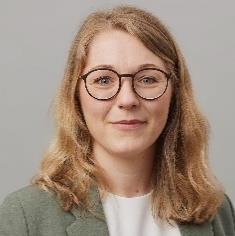
Nathalie Grob earned her BSc in Pharmaceutical Sciences and MSc in Pharmacy from the University of Basel in Switzerland. For her MSc thesis, she joined the group of Prof. Ulf Göransson at Uppsala University in Sweden to study structure-activity relationships in complex peptide natural products. She subsequently pursued a PhD at ETH Zürich with Prof. Roger Schibli and Prof. Thomas Mindt to work on radiolabeled peptides for cancer diagnosis and treatment. From 2020–2023, Nathalie Grob was a postdoctoral researcher in the group of Prof. Bradley Pentelute at the Massachusetts Institute of Technology. Her postdoctoral research focused on early-stage drug discovery of small molecules and peptides. In April 2024 she returned to the Department of Chemistry and Applied Biosciences and the Institute of Pharmaceutical Sciences at ETH Zürich to launch a new research group for “peptide-based drug discovery” as an Assistant Professor supported by a Starting Grant of the Swiss National Science Foundation. Nathalie Grob's research aims to develop efficient methods for the discovery of novel drug candidates. The research of her group focuses on the therapeutic modulation of protein–protein interactions by peptide-based modalities. Through the use of combinatorial chemistry and high-resolution mass spectrometry her group follows a multidisciplinary approach to develop robust workflows for hit identification.
DMCCB PhD Prize 2026 - Application open
The DMCCB PhD prizes are awarded for exceptional PhD theses in the field of Medicinal Chemistry and/or Chemical Biology completed (successful PhD exam) at a Swiss University or ETH/EPF during the 24 months preceding the submission deadline. The Awards are given every second year and consist of a certificate and cash check of CHF 1’500. Up to two prizes are awarded. Award and award ceremony are included as part of a DMCCB event, e.g. the DMCCB Basel Symposium.
Deadline to hand in your application is September 30, 2025. More info can be found on the SCS website.
For more DMCCB community news please also check the SCS website and follow us on LinkedIn or Bluesky.
Congratulations to the Awards winners!
At the DMCCB Basel symposium, Dr. Lukas Schneider and Dr. Zuzanna Kozicka were awarded the Cancer Drug Discovery Research Award, supported by RGCC International, for their achievements in the field of anticancer research during their PhD studies. At the same event, Claire Grigglstone from the Hartrampf group at UZH and Nathan De Sadeleer of the Heinis group at EPFL received the prizes for the best posters, for their research in phosphopeptides synthesis and membrane permeable cyclic peptides respectively.
Activities of the DMCCB/SCS
 SCS Spring Meeting 2025: The SCS Spring Meeting is a one-day symposium and provides a high-quality program with national and international speakers on a certain topic. The topic of the 2025 symposium is «Electrocatalysis: Current Challenges and Future Perspectives». It will take place on April 24, 2025 at the University of Bern, Department für Chemie und Biochemie. Check out the event’s website for more details and registration.
SCS Spring Meeting 2025: The SCS Spring Meeting is a one-day symposium and provides a high-quality program with national and international speakers on a certain topic. The topic of the 2025 symposium is «Electrocatalysis: Current Challenges and Future Perspectives». It will take place on April 24, 2025 at the University of Bern, Department für Chemie und Biochemie. Check out the event’s website for more details and registration.
 The SCS Conference on Stereochemistry 2025 (Bürgenstock Conference): The ‘SCS Conference on Stereochemistry’, better known as Bürgenstock Conference’, is an outstanding international chemistry meeting of high scientific quality, with an optimal setting for intense inter-disciplinary discussion. It will take place from May 4-8, 2025 at the Hotel Waldstätterhof in Brunnen.
The SCS Conference on Stereochemistry 2025 (Bürgenstock Conference): The ‘SCS Conference on Stereochemistry’, better known as Bürgenstock Conference’, is an outstanding international chemistry meeting of high scientific quality, with an optimal setting for intense inter-disciplinary discussion. It will take place from May 4-8, 2025 at the Hotel Waldstätterhof in Brunnen.
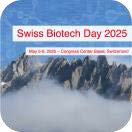 Swiss Biotech Day 2025: In 2025, the Swiss Biotech Day will again offer high-level experts from the life sciences industry the space and the time (one and a half days) to network, discuss and discover trends in R&D, manufacturing, data management, artificial intelligence and innovative financing. This two-day event is scheduled to take place from May 5, 11.00 to May 6, 18.00 at the congress center of the Messe Basel. Please visit the event’s website for more information and registration. SCS members profit from a 33% discount on the registration fee.
Swiss Biotech Day 2025: In 2025, the Swiss Biotech Day will again offer high-level experts from the life sciences industry the space and the time (one and a half days) to network, discuss and discover trends in R&D, manufacturing, data management, artificial intelligence and innovative financing. This two-day event is scheduled to take place from May 5, 11.00 to May 6, 18.00 at the congress center of the Messe Basel. Please visit the event’s website for more information and registration. SCS members profit from a 33% discount on the registration fee.
 3rd Empowering Women in Organic Chemistry Europe Conference: The event is aimed at enabling networking with industry, academia, women and allies at different career stages, scientific presentations and motivational workshops on themes relevant to women and allies undertaking a career in Organic Chemistry. Following the success of a US event ‘Empowering Women in Organic Chemistry’ (EWOC), which first took place 2019, a group of scientists in Europe decided to organise a similar initiative as a ‘sister’ event, which was held at the Manchester Conference Centre in June 2023 and in Birmingham in June 2024. Recent data and publications show a persistent lack of women pursuing and maintaining careers in Organic Chemistry. Evidence indicates that providing an opportunity for women to meet, network, and share scientific and career strategies is one effective approach to encourage women to enter and maintain careers in science. This two-day event is scheduled to take place from June 2, 10.00 to June 3, 17.15 on Novartis Basel Campus (Frank O. Gehry Building, Fabrikstrasse 15). More information can be found on the event’s website.
3rd Empowering Women in Organic Chemistry Europe Conference: The event is aimed at enabling networking with industry, academia, women and allies at different career stages, scientific presentations and motivational workshops on themes relevant to women and allies undertaking a career in Organic Chemistry. Following the success of a US event ‘Empowering Women in Organic Chemistry’ (EWOC), which first took place 2019, a group of scientists in Europe decided to organise a similar initiative as a ‘sister’ event, which was held at the Manchester Conference Centre in June 2023 and in Birmingham in June 2024. Recent data and publications show a persistent lack of women pursuing and maintaining careers in Organic Chemistry. Evidence indicates that providing an opportunity for women to meet, network, and share scientific and career strategies is one effective approach to encourage women to enter and maintain careers in science. This two-day event is scheduled to take place from June 2, 10.00 to June 3, 17.15 on Novartis Basel Campus (Frank O. Gehry Building, Fabrikstrasse 15). More information can be found on the event’s website.
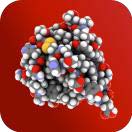 Peptide Pharmaceutics Forum 2025: The event provides an innovative platform to exchange on the various aspects of drug development with a focus on peptides. Like previous events in the framework of Basel Life, presentations highlight important new insights regarding the drug discovery of peptides including examples for successful development candidates. This forum should disseminate information on latest news in the broad field of therapeutic peptides and enable networking of interested parties from academia and industries. This year’s edition features, among many others, talks from Prof. Jeffrey Bode (ETH Zürich), Prof. Christian Heinis (EPFL Lausanne) and Dr. Alexey Karpov (Novartis). The forum will take place on June 5-6, 2025, at the Biozentrum in Basel. More information and registration can be found website.
Peptide Pharmaceutics Forum 2025: The event provides an innovative platform to exchange on the various aspects of drug development with a focus on peptides. Like previous events in the framework of Basel Life, presentations highlight important new insights regarding the drug discovery of peptides including examples for successful development candidates. This forum should disseminate information on latest news in the broad field of therapeutic peptides and enable networking of interested parties from academia and industries. This year’s edition features, among many others, talks from Prof. Jeffrey Bode (ETH Zürich), Prof. Christian Heinis (EPFL Lausanne) and Dr. Alexey Karpov (Novartis). The forum will take place on June 5-6, 2025, at the Biozentrum in Basel. More information and registration can be found website.
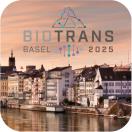 Biotrans 2025 (17th International Symposium on Biocatalysis and Biotransformations): The event will highlight the latest advances in biocatalysis research achieved across the world. The event will take place from June 29-July 03 2025, at the Congress Center Basel. The 2025 edition will cover topics such as enzyme discovery, new enzymatic activities in traditional as well as in a new modalities context, artificial metalloenzymes, natural product synthesis, enzyme engineering and design with a focus on computational methods. The symposium offers an exceptional opportunity to meet experts in these fields and to exchange ideas between players of the public and private sector in a stimulating environment. The program will include plenary and invited lectures by leaders in their respective fields. Oral communications from academia and industry will be selected from high-quality abstracts in all areas related to the symposium topics, as well as flash poster presentations and posters. More information and registration can be found on the event website.
Biotrans 2025 (17th International Symposium on Biocatalysis and Biotransformations): The event will highlight the latest advances in biocatalysis research achieved across the world. The event will take place from June 29-July 03 2025, at the Congress Center Basel. The 2025 edition will cover topics such as enzyme discovery, new enzymatic activities in traditional as well as in a new modalities context, artificial metalloenzymes, natural product synthesis, enzyme engineering and design with a focus on computational methods. The symposium offers an exceptional opportunity to meet experts in these fields and to exchange ideas between players of the public and private sector in a stimulating environment. The program will include plenary and invited lectures by leaders in their respective fields. Oral communications from academia and industry will be selected from high-quality abstracts in all areas related to the symposium topics, as well as flash poster presentations and posters. More information and registration can be found on the event website.
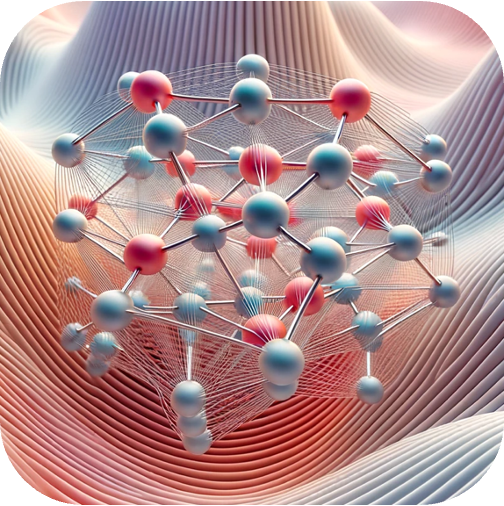 SCS Fall Meeting 2025: The SCS Fall Meeting 2025 is one of the largest annual research conferences held in Switzerland and offers a unique opportunity for all members of the community to share the results of their research initiatives and to connect with each other. It will take place at the Irchel Campus of the University of Zurich on September 4, 2025. Watch out for more info which will be published on the SCS website .
SCS Fall Meeting 2025: The SCS Fall Meeting 2025 is one of the largest annual research conferences held in Switzerland and offers a unique opportunity for all members of the community to share the results of their research initiatives and to connect with each other. It will take place at the Irchel Campus of the University of Zurich on September 4, 2025. Watch out for more info which will be published on the SCS website .
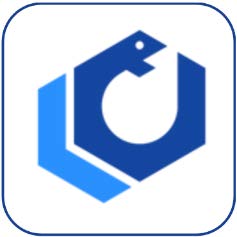 EFMC-ISMC 2026: The EFMC-ISMC 2026 will follow the traditional format of ISMC events, with plenary lectures and three parallel sessions covering medicinal chemistry, chemical biology, and related technologies, spanning all major technologies and therapeutic areas, including bacterial and viral infections, diseases of the brain, heart, and respiratory system, fibrotic diseases and cancer. It is co-organized by the DMCCB and will take place at the congress center of the Messe Basel from September 4-10, 2026. Watch out for more info which will be published on the EFMC-ISMC website soon.
EFMC-ISMC 2026: The EFMC-ISMC 2026 will follow the traditional format of ISMC events, with plenary lectures and three parallel sessions covering medicinal chemistry, chemical biology, and related technologies, spanning all major technologies and therapeutic areas, including bacterial and viral infections, diseases of the brain, heart, and respiratory system, fibrotic diseases and cancer. It is co-organized by the DMCCB and will take place at the congress center of the Messe Basel from September 4-10, 2026. Watch out for more info which will be published on the EFMC-ISMC website soon.
Activities & events from the European Federation of Medicinal Chemistry (EFMC)
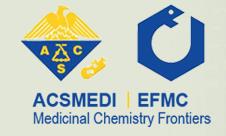 ACSMEDI-EFMC Medicinal Chemistry Frontiers: This conference is co-organized by ACS MEDI (Division of Medicinal Chemistry of the American Chemical Society), and the EFMC. The 2025 edition will take place in Chicago, IL, United States from May 12- 15, 2025. ACSMEDI-EFMC Medicinal Chemistry Frontiers Meeting attracts a highly targeted audience composed of experts, researchers and early career trainees in drug discovery and development, in particular medicinal and synthetic chemists, together with scientists active in the fields of computer-assisted drug design, biology, DMPK, pharmacology, and early toxicology. See the event’s website for a detailed program and registration.
ACSMEDI-EFMC Medicinal Chemistry Frontiers: This conference is co-organized by ACS MEDI (Division of Medicinal Chemistry of the American Chemical Society), and the EFMC. The 2025 edition will take place in Chicago, IL, United States from May 12- 15, 2025. ACSMEDI-EFMC Medicinal Chemistry Frontiers Meeting attracts a highly targeted audience composed of experts, researchers and early career trainees in drug discovery and development, in particular medicinal and synthetic chemists, together with scientists active in the fields of computer-assisted drug design, biology, DMPK, pharmacology, and early toxicology. See the event’s website for a detailed program and registration.
 EFMC-Young Medicinal Chemists Symposium 2025: The 12th edition of this symposium will be held in Porto, Porto, Portugal on September 4-5, 2025 and will be organized by the European Federation for Medicinal Chemistry and Chemical Biology (EFMC) and the EFMC Young Scientists Network (YSN). The event will be organized in connection with the X EFMC International Symposium on Advances in Synthetic and Medicinal Chemistry (EFMC-ASMC 2025). This short symposium has the aim of:
EFMC-Young Medicinal Chemists Symposium 2025: The 12th edition of this symposium will be held in Porto, Porto, Portugal on September 4-5, 2025 and will be organized by the European Federation for Medicinal Chemistry and Chemical Biology (EFMC) and the EFMC Young Scientists Network (YSN). The event will be organized in connection with the X EFMC International Symposium on Advances in Synthetic and Medicinal Chemistry (EFMC-ASMC 2025). This short symposium has the aim of:
- creating a network of young European investigators
- stimulating young European investigators to share their scientific work with peers and inspiring leaders in the field
- creating competition and excellence within Europe by selecting the European Champion in Medicinal Chemistry and Chemical Biology
Check out the event’s website for more info.
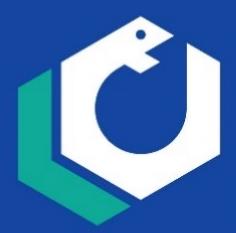 EFMC-ASMC 2025: the X EFMC International Symposium on Advances in Synthetic and Medicinal Chemistry: The EFMC and the Division of Medicinal Chemistry of the Portuguese Chemical Society will be organizing the 10th edition of the International Symposium on Advances in Synthetic and Medicinal Chemistry (EFMC-ASMC 2025), which will take place in Porto, Portugal from August 31-September 4, 2025. This symposium will bring together chemists from industry, academia and start-up companies and is focused on the most recent advances in new synthetic methodologies, total synthesis, chemical biology, process and medicinal chemistry, and automation & AI approaches in synthesis and drug discovery. The program will include among others, lectures given by Prof. Christina White (University of Illinois, Urbana-Champaign), Prof. Richmond Sarpong (University of California, Berkeley) and Prof. Helma Wennemears (ETH Zurich). Check out the event’s website for registration and more info.
EFMC-ASMC 2025: the X EFMC International Symposium on Advances in Synthetic and Medicinal Chemistry: The EFMC and the Division of Medicinal Chemistry of the Portuguese Chemical Society will be organizing the 10th edition of the International Symposium on Advances in Synthetic and Medicinal Chemistry (EFMC-ASMC 2025), which will take place in Porto, Portugal from August 31-September 4, 2025. This symposium will bring together chemists from industry, academia and start-up companies and is focused on the most recent advances in new synthetic methodologies, total synthesis, chemical biology, process and medicinal chemistry, and automation & AI approaches in synthesis and drug discovery. The program will include among others, lectures given by Prof. Christina White (University of Illinois, Urbana-Champaign), Prof. Richmond Sarpong (University of California, Berkeley) and Prof. Helma Wennemears (ETH Zurich). Check out the event’s website for registration and more info.
EFMC-YSN MENTORING PROGRAMME 2025 – APPLICATIONS ARE OPEN
To inspire, connect and provide opportunities to medicinal chemists and chemical biologists in their Early Career, the Young Scientists Network of the EFMC is hosting the fifth edition of the mentoring program, aiming to connect motivated students with high-profile mentors. The mentoring program is shaped for PhDs (up to 18 months before the end of PhD) and Post-docs, who are seeking a career in medicinal chemistry, chemical biology or related fields, either in industry or academia. The main objective is to support their transition into the job market by providing feedback, soft-skill training, and overall guidance.
More information and mentee application on www.efmc.info/mentoring-programme.
Deadline for application is April 15, 2025.
Want to join the program as a mentor? Reach out to us at
CHEMBIOCHEM SPECIAL COLLECTION "MUTUALLY REWARDING ACADEMIA-INDUSTRY COLLABORATIONS IN CHEMICAL BIOLOGY"
We are pleased to present the recently completed ChemBioChem – EFMC Special Collection on "Mutually Rewarding Academia-Industry Collaborations in Chemical Biology" (Auberson et al., 2023). Breakthroughs in life sciences, such as drug discovery, involve complex, multidisciplinary processes that transition from initial scientific concepts to the development of viable candidates, offering valuable collaboration opportunities between academia and industry. While industry is driven by goal-oriented, time-sensitive projects, academia focuses on basic research, allowing for riskier, long-term explorations. These collaborations can be mutually advantageous, with academia contributing innovative tools and industry providing advanced resources, potentially leading to significant scientific advancements. Ideally, successful partnerships should culminate in published outcomes that benefit society, and recognizing common pitfalls can enhance future cooperation. This collection features ten contributions that showcase fruitful collaborations. Read more
Did you know?
The EFMC Best Practices Working Group has released a new set focusing on PROTACs (Proteolysis Targeting Chimeras). It consists of didactic slides and videos which are freely available to anyone interested. This publication marks a significant step in consolidating the latest knowledge and recommendations to optimize practices in this rapidly evolving field. https://www.efmc.info/proteolysis_targeting_chimeras.
